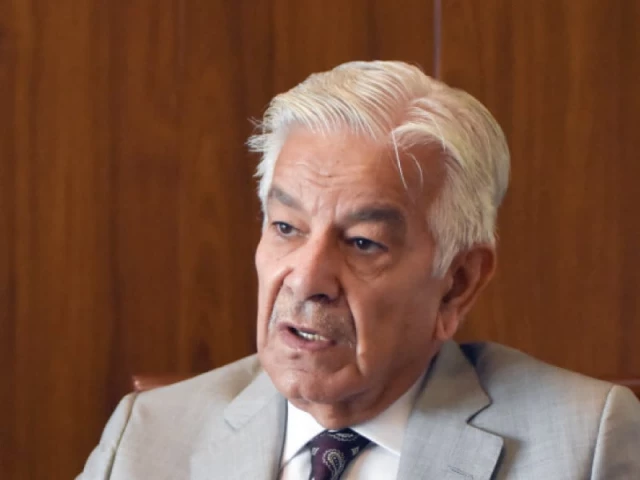Islamabad:
The long -term desired hybrid system now seems to have completely matured. Surprisingly, it is no longer a secret but being openly approved and celebrated. With an in -office federal minister renting the hybrid system as a model of success and the military leader receiving world projectors who are generally reserved for elected leaders, it seems clear that the powerful stakeholders are no longer behind the curtain but are now at the center of the stage.
“The Renaissance of the economy, the defeat of India, the improvement of links with the United States, all these revolutionary changes have been made possible by cooperation between Prime Minister Shehbaz Sharif and Marshal Asim Munnir and the excellent relations between Islamabad and Rawalpindi,” said Defense Minister Khawaja Asif, who wrote on X a few days ago.
The recent remarks of the Minister may have raised the eyebrows, but for some political analysts, they simply confirmed what has long been obvious: the hybrid regime is not only real; It’s flourishing. Ironically, the hybrid system was once a term used with caution, but is now presented as a practical solution to the political and economic instability of Pakistan, among others.
With increasingly vague civilian and military roles, they say, the hybrid model seems to have taken a more formal and accepted form where political legitimacy comes from the ballot box and largely from the proximity of Rawalpindi.
Once PTI has defended it and now the PML-N and the PPP believe that their survival is not to oppose the new system but to be part of it. Apparently, decades of confrontation, disqualification, prisons, exile and political engineering have apparently been wasted.
To the question of knowing if it was a permanent change, the analyst of renowned policies and journalist Raza Rumi declared that the permanence is a fragile word in Pakistan, adding “but yes, what we are witnessing is not only a moment – is the slow cement of a hybrid power structure”.
For decades, said the eminent analyst, the soldiers have been the “guardian” of the national interest, but now the lines are no longer vague – they are redesigned. “Civilians remain in office, but power lies more and more elsewhere,” said Rumi, “the hybrid model is no longer an ad hoc arrangement; it is an institutionalized reality. It has uniforms, protocols and now even diplomatic portfolios.” Whether it is permanent, he said, depends not only on the domestic dynamics but also on the quantity of people and institutions arranged to challenge – or to internalize – this imbalance.
To the question of the solo meeting of the field marshal with the American president Donald Trump, Rumi said that the titles imported – in particular when they evoke authority beyond the battlefield. “A” field marshal “is not only a rank; it is a statement,” he said. He explained that he had a historical resonance, a strategic stature and in the case of Pakistan, a wink where real decision -making is often. “So when such a figure holds a solo meeting with Donald Trump, bypassing the usual diplomatic game book, it’s not entirely surprising,” said Rumi. One could even say that in a region where security problems often define foreign policy, he added, the presence of a military figure at the upper table is pragmatic.
But do not claim that it is Benin, continued Rumi, the fact that the elected Prime Minister had to publish a follow -up declaration – reiterating his invitation to Trump and expressing the hope of a meeting “at the earliest convenience” – reveals the uncomfortable truth: civil leadership plays the role, but did not command the spotlight. “The choreography of power is increasingly manifest,” he said, adding that the international commitments of Pakistan often reflect hybrid order at home, where optics and authority are carefully managed-and not always by those who have electoral mandates.
The president of Pakistan Institute of Legislative Development and Transparency (Pildat), Ahmed Bilal Mehboob, thinks that the main reason for the current “military ancestry” is the bitter confrontation between the PTI and the government and the PTI anti-military leadership posture. “While these confrontations extend through the dialogue and tolerance of political differences,” said the leader, who keeps an eye on political developments in and outside the Parliament, “I think the situation will normalize.”
Commenting on Marshal’s individual meeting with Trump and civil authority, Mehboob said that the recent Trump-Mnumeur meeting was extraordinary and unprecedented, saying that this indicates the growing importance of Pakistani soldiers in the context of the geopolitical environment and recognition of the campaign of Pakistani military against terrorists, including the arrest and transfer of a terrorist involved in Afghan Afghan in an Afghan. “I hope it will only be an exceptional development, but President Trump is known to have taken unconventional measures,” he said.
To the question of whether the political parties kissed the hybrid model out of necessity or the choice and what type of elections that people should expect in the future, Mehboob while answering in the negative to the first question said that political parties were trying to live with the current realities hoping that these are temporary conditions. “It is imperative that political parties, including PTI, are a serious dialogue focused on the creation of conditions necessary for free and fair elections in the future,” he said.
In addition, Mehboob concluded by saying that if political parties focus on this dialogue and take a ramp to defuse the dominant confrontation, there will be a greater chance of a good election in the future.




